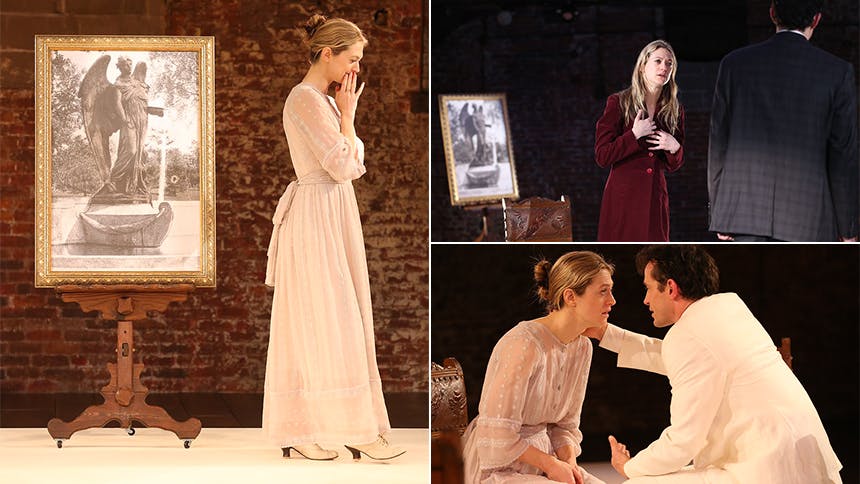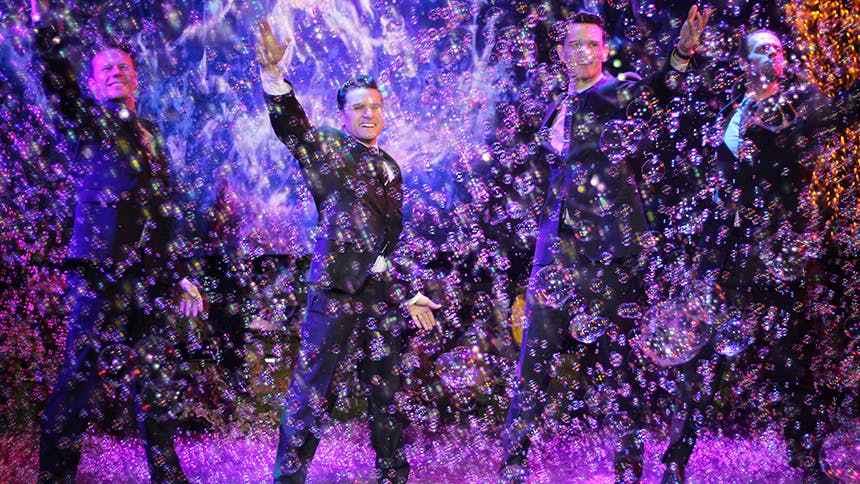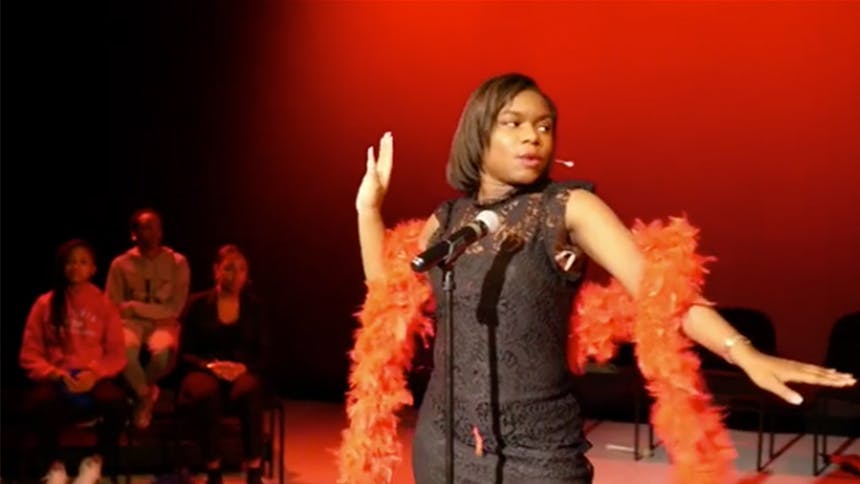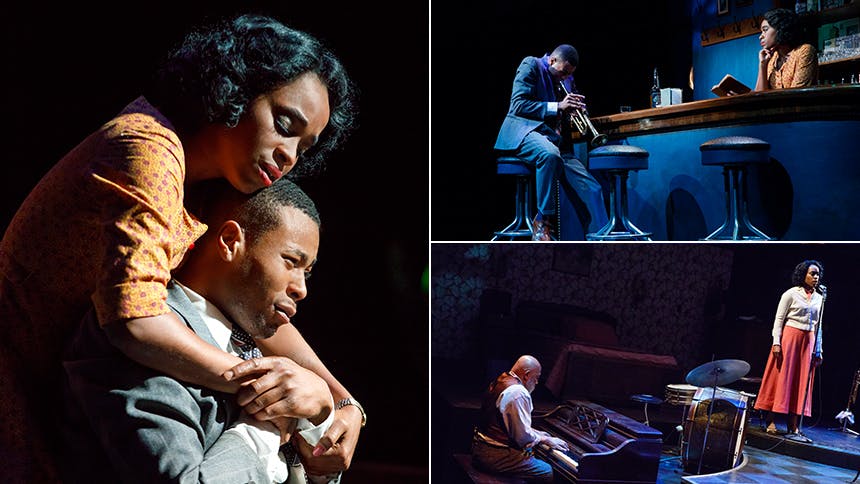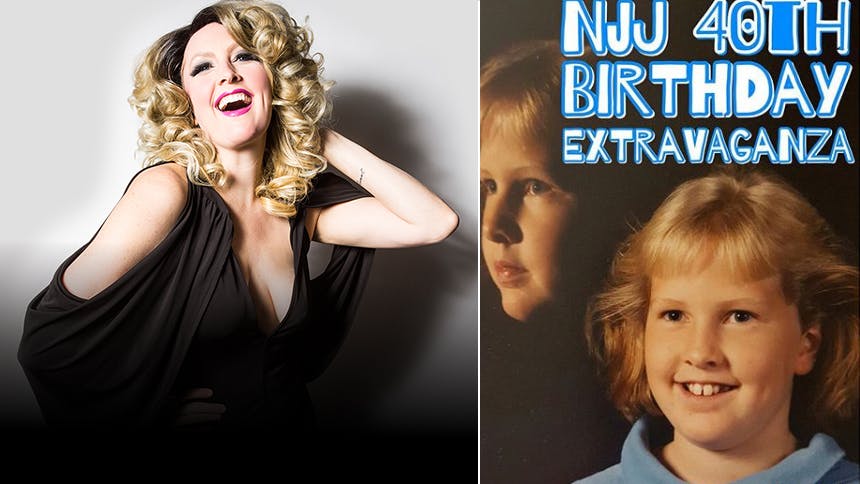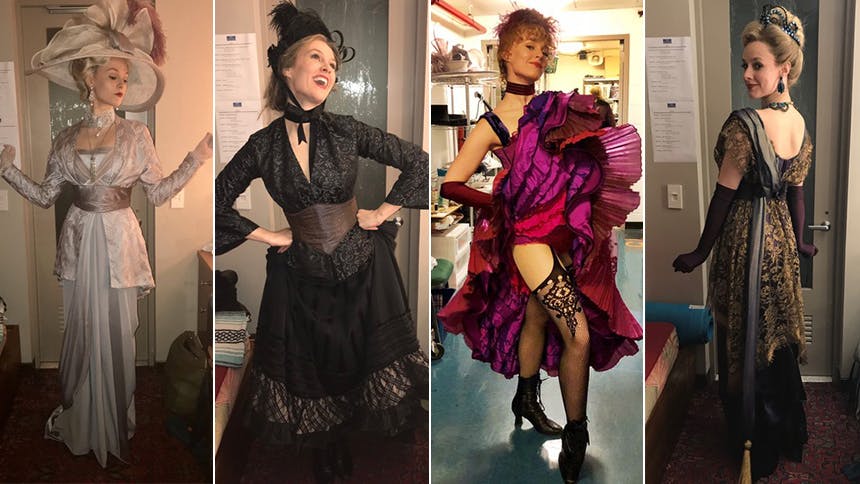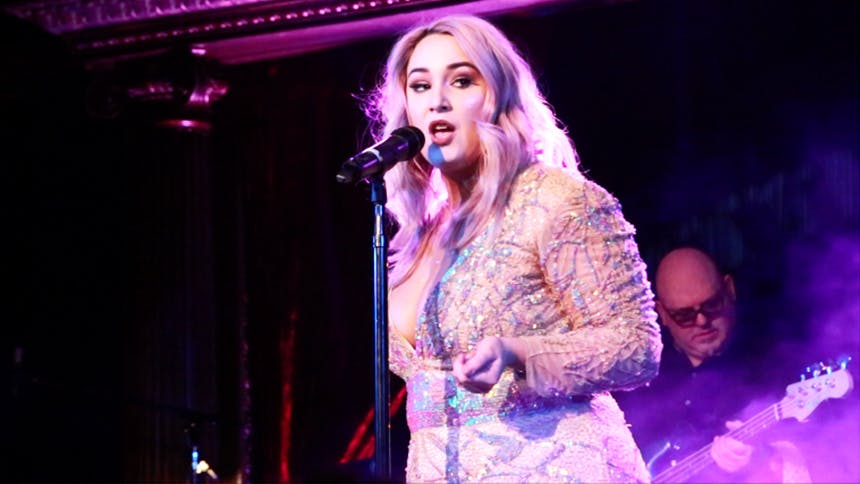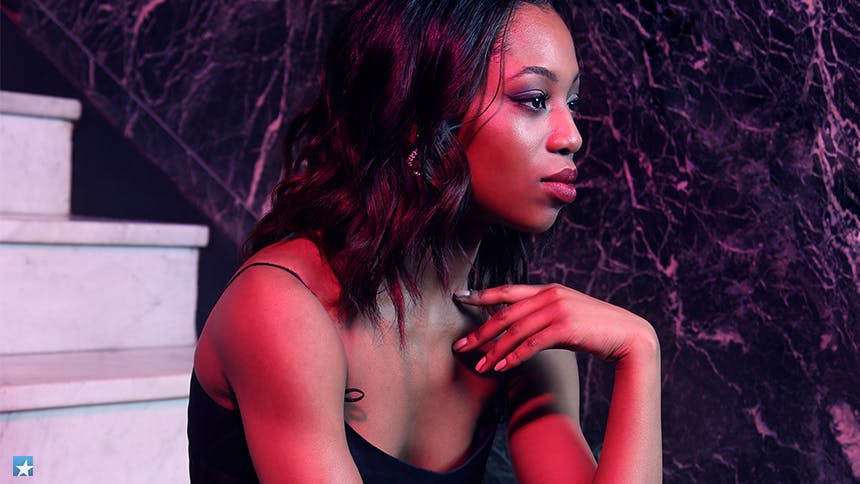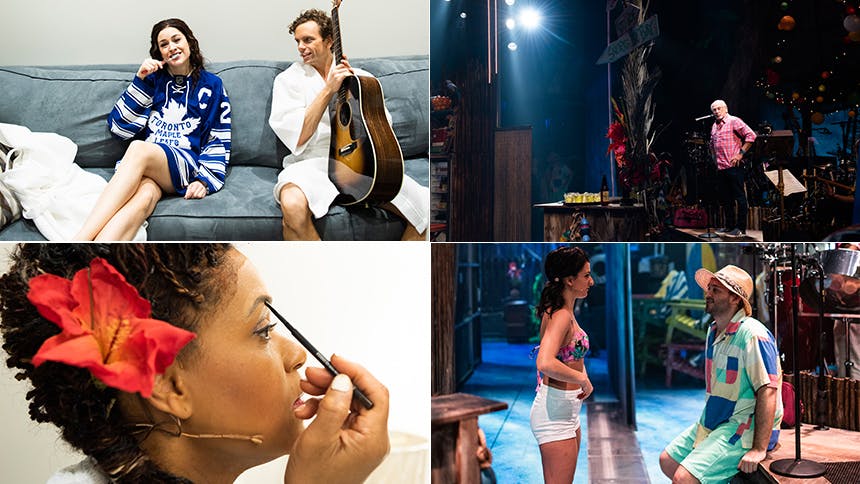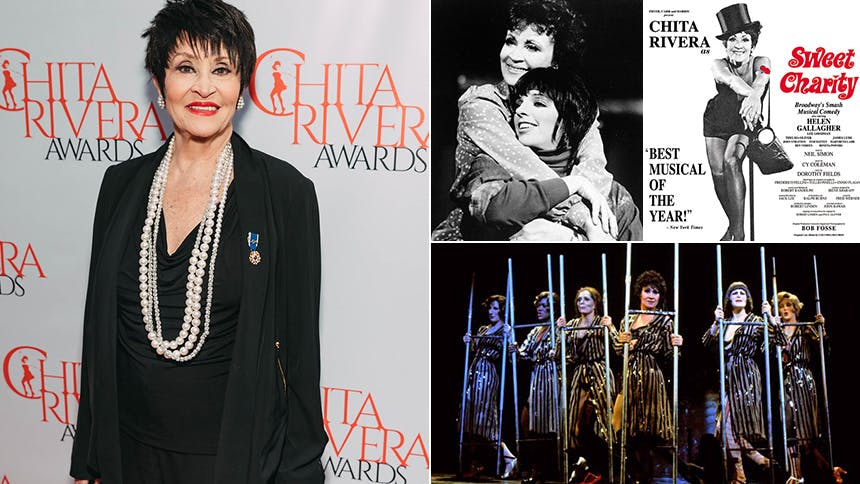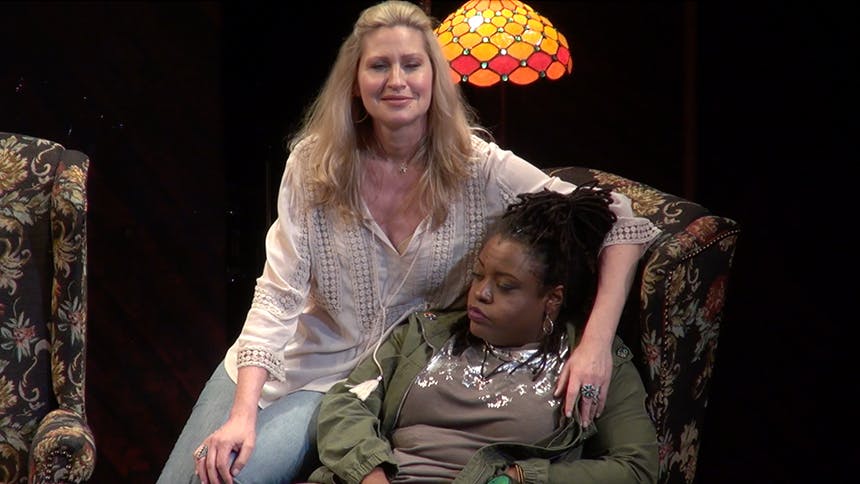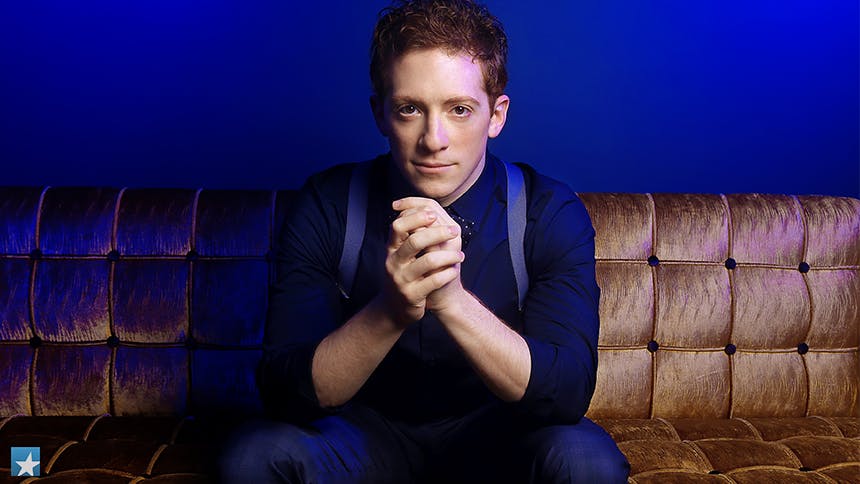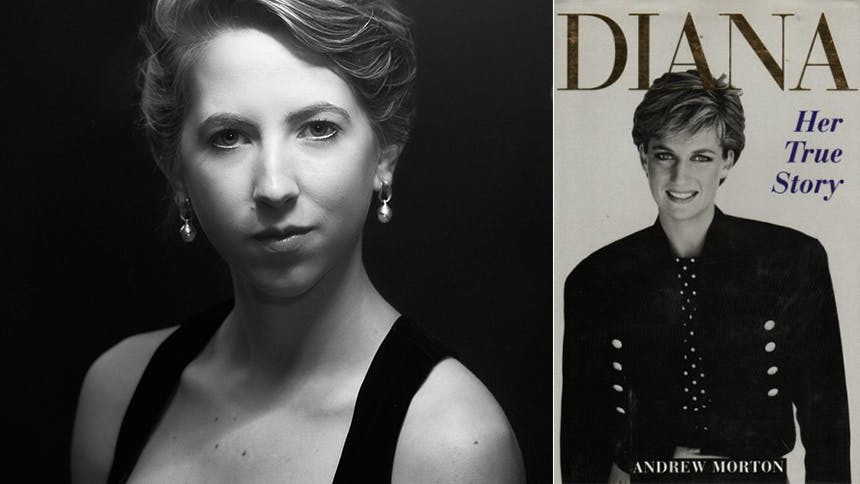Tony nominee Marin Ireland is a critical favorite and an actress those in the know about New York theatre seek out to see onstage. She is back off-Broadway giving another incredible performance as Alma (the emotionally and physical frail preacher's daughter) in Classic Stage Company's revival of Tennessee William's Summer and Smoke
. Her wide range of stage work includes reasons to be pretty, A Lie of the Mind, In the Wake, The Big Knife, Three Sisters, On the Exhale, and Marie Antoinette. Her notable screen credits include co-starring roles on Sneaky Pete, Mildred Pierce, Homeland and much more.
BroadwayBox caught up with Marin to discuss how she got inside this complicated Williams character, the unique challenge of Amazon's Sneaky Pete, and how she chooses her projects.
1. Tennessee Williams creates such complex women and Alma is no exception. Where did you start with her? How did you begin to create the performance we see at CSC?
This is a particularly interesting situation because she’s described at great lengths by him. He has described her mannerisms and her vocal patterns, even the way she holds her hands. It also says things like people make fun of her but she shouldn’t appear ludicrous in any way. It’s a lot of outside in type of stuff for an actor. Honestly, I think I really just trusted Jack, and I remember telling him at the beginning that I didn’t want to start doing all of that stuff; I didn’t want to start from the outside. I wanted to figure out, for me, who she was first, and hopefully those things would start to kind of grow off of her like leaves or flowers or something. I remember just telling him, ‘I’m going to try to tunnel up and under with her and maybe like circle it for a while.’ Trying to find a way there, that was pretty much my own truth and experience.
It also says in the beginning of the script that she doesn’t yet know her true self. So, I thought, ‘Okay, the trick is going to be for me to build something as the actor that’s sort of underneath all of this stuff that’s very deep, but then find a way to then construct a coping mechanism that she’s created to survive that’s on top of all of that, like a scaffolding or something.’ It was really elaborate. We talked a lot, actually, at rehearsal about shame and this idea of childhood trauma that she and John both went through, and how they’ve built these really elaborate coping mechanisms and that seemed to make a lot of sense to us. We all just try and make it through the day, and if our coping mechanism isn’t working for us anymore, we can’t really just throw it aside without something else to take its place.
2. After giving this sensational performance as Alma, are you looking ahead at other Tennessee Williams characters? Has this inspired you to think about your Amanda or Blanche or Stella or Maggie?
That’s so interesting. Before doing this, I had only thought of Stella, really. One day, I would also love to see The Night of the Iguana come around and get to take on Hannah in that. But what’s interesting is now because of my experience with this—where I feel like she has so much in her that reminds me of Blanche and Amanda and all these others—that now I just sort of feel like it’s a lot more open in my mind. I don’t have my sights set on any one in particular. I feel like now I’m much more interested in Blanche and Amanda than I used to be. I’m thinking about those a lot because, gosh, these big roles are so terrifying. I didn’t really ever think those were sort of ones that my wheelhouse would allow for. I was like, ‘I don’t feel those are my path exactly.’ But I think that these kinds of parts come to you when you don’t really realize that you need them somehow and your life is sort of ready for it. So, I’m hopeful that another one of them will come down the pike when it’s the right moment for me. It would be such a privilege.
3. Your acclaimed career has been so varied and interesting. How do you choose your work, and do you do a good job at looking forward and not side to side at your peers?
No, I’m terrible at it. I am really terrible. I do work very hard at it. I think of it like a practice—like a yoga practice or a meditation practice, where I just have to keep practicing. It can be very hard. My best way to counteract it—here’s my secret—is that I try to become friends (and if I’m already friends, better friends) with anybody who I start to think of [in that way]. Because the more I can teach myself to just be happy for any of these wonderful, talented, other people, and just remember that. There is room for everybody. My friend Reed Birney says, ‘If the train doesn’t stop at your station, it’s just not your train.’
Picking work normally ticks one of two boxes. If it’s onstage, I like to do as much as I can possibly do—when I can just take the full ride and use everything I’ve got. I’m just really greedy for those experiences. And if it scares the crap out of me, and I have no idea how to do it, then usually I’m in. Alma still scares me, totally; it’s terrifying. What excites me about that is that if I have no idea how to do it then I know that at least by the time I’m performing it I’ll have discovered something new about myself being new as an actor. That’s really exciting to me just in terms of the limited time we have on Earth.
4. Let’s talk about your screen credits for a second. Which of your screen roles was the toughest to get into at first, and how did you crack it?
That’s very interesting. I think it’s been Sneaky Pete. I didn’t really know when we started shooting who my character was. I had no idea. I remember talking to Margo Martindale about it, and she was like, ‘I have no idea.’ I’ve never been in that situation. Usually when you’re doing a little one off, you have a clearer character—like I’m the murderer, or my daughter went missing, or whatever it is. I remember just deciding, ‘Okay, all I can do is play the scenes in front of me as they come. It’s impossible for me to back load anything. I can only play literally what’s in front of me on the page and try to give as many options as I can.’ And, after a little while, I thought, ‘You know what? I guess if I’m feeling lost, then that’s the character, and she’s got to be feeling lost in her life. She doesn’t know what she’s doing, she doesn’t know what she’s supposed to do.’ So, even when I’m feeling scared or self-conscious that folds right in.
5. It’s been about six months since the launch of The Pilot Project, and the Me Too and Times Up movements continue to be at the forefront of the national conversation. In regards to The Pilot Project, what have you been most proud of accomplishing?
I started talking to Equity about changing policy related to this stuff a couple years ago. And, The Pilot Project was one of the most complicated things we were trying to achieve. The other things that we asked for have kind of come to pass—which is pretty major and took about two years to sort of really get in place—which are the fact the business representatives at Equity are now trained to deal with these sorts of these complaints, and there is information about that on the website (which didn’t used to exist) and at the theaters, nationally. And those policies are very clearly stated to the people on the first day of rehearsal.
So, we just decided when all of this stuff was really surging nationally to push The Pilot Project through ourselves just to make that available as it was needed. I’ve had individuals reach out to me directly, since all that started, and just say that the fact that I was talking about this at all made them feel like they could come forward. Things like that, I feel very proud of. It feels like it has allowed somebody else to feel brave because I was being brave.
Specifically, I had an experience where I also was reaching out to theaters, just personally, saying, ‘Hey, can you just confirm with me personally that you’re going to give a speech on the first day of rehearsal and that I think it should be the highest person at this company and not just a person in HR. I think it should be the top person, and here’s the template—in case you’re looking for something to say, here’s something to say. And a lot of people responded to me and said, ‘Absolutely and I’ll post this, and we’ll do this, and thank you for this.’
Then, the experience I had personally with asking Matt Shakman (who took over at the Geffen) if he would do that on our first day of rehearsal for Ironbound. And so, the fact that I was standing in that room and seeing everybody present for the first day meet and greet—including like the carpenters and the scene painters and all the assistant designers— people who don’t usually hear that kind of language because they’re not present in a lot of these conversations that we’re all having and they’re not always feeling protected. Watching all of them kind of nodding wholeheartedly that this was being brought out into the open by this particular individual, I was very emotional. That was a moment that I felt so proud, just to see everybody in that room, I felt something, I really felt something actually palpably changing in that room. I felt people get nervous a little bit when it started to come up; when he said, ‘This is something where we’re concerned with everybody’s rights and want everyone to feel safe in their work here.’ All of the sudden you could feel everybody start to get a little nervous. And then, as he continued and just said these very simple sentences about, ‘here’s what you do here if this happens, and here is who you go to,’ I could feel the room, it was just a genuine moment of change, and I was very, I felt very proud of that. It’s a little thing, but I feel like those are those little changes that makes the big ones.
Don't miss Marin Ireland in 'Summer and Smoke' at CSC through May 25.
